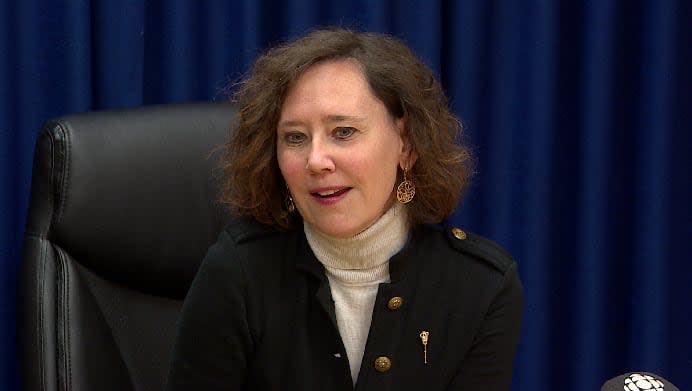Sask. urging federal government to ban AI voice cloning ahead of elections

Months before a provincial election, Saskatchewan is urging the federal government to ban the use of artificial intelligence (AI) for voice cloning.
Justice Minister and Attorney General Bronwyn Eyre said having rules to ban AI-generated voice cloning is in the best interest of protecting democracy and electoral integrity.
"Those would become the communications rules for robocalls and any voice-cloned AI-generated calls across the country," Eyre said in an interview.
The call comes after an AI-generated voice of U.S. President Joe Biden was sent to people in New Hampshire earlier this year. The U.S. Federal Communications Commission ruled that robocalls using AI-generated voices were illegal and proposed a $6-million fine.
"We've seen voice cloning of other politicians around the world ... and I think the risks are obviously fakery of messaging in an election, and impersonation of a voice could lead to all sorts of risk in an election," Eyre said.
Eyre said the ministry is looking at what it can do under provincial legislation to strengthen protections but ultimately it's the national CRTC that's best positioned to make regulations.
Saskatchewan's Chief Electoral Officer Michael Boda has been considering the effects that AI might have on the upcoming election.
"It's something that I'm focused on significantly. We're at the very beginning of that journey," he said in an interview.
"But I can tell you that I have been meeting with my colleagues across the country. We will be meeting in July to have further discussions on that and I anticipate releasing a statement on AI in July."
How is AI used for voice cloning?
Jonathan Anderson, an associate professor and computer security expert at Memorial University in St. John's, N.L., previously told CBC that it has become easy and cheap for people to effectively mimic someone's voice using AI.
Anderson said it can take as little as 30 seconds of decent quality audio to clone somebody's voice.
He recommends that people be skeptical about anything they receive electronically and be careful about where information is coming from.
"I think awareness is pretty key. Educating people on what is possible, letting them see just how well we can clone voices and things," he said.


